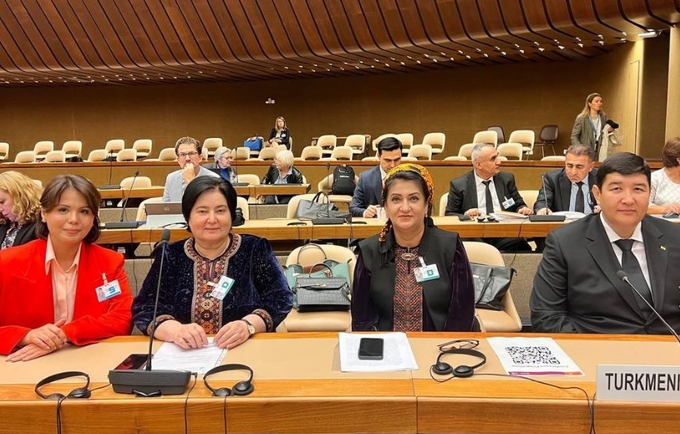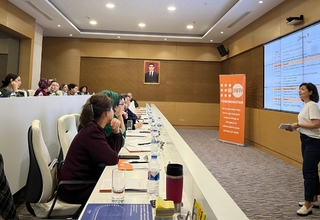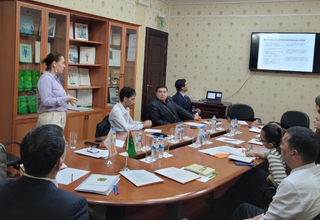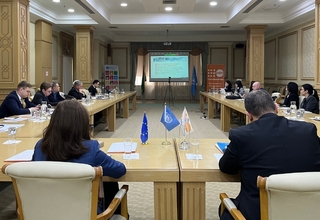ASHGABAT/GENEVA, 20 October 2023 – The UN Economic Commission for Europe and UNFPA, the United Nations Population Fund reviews progress towards the goals adopted by the landmark 1994 International Conference on Population and Development (ICPD) in the UNECE region, comprising 56 member States in Europe, North America and Central Asia at the two-day conference, entitled “Population and Development: Ensuring Rights and Choices” in Geneva, Switzerland.
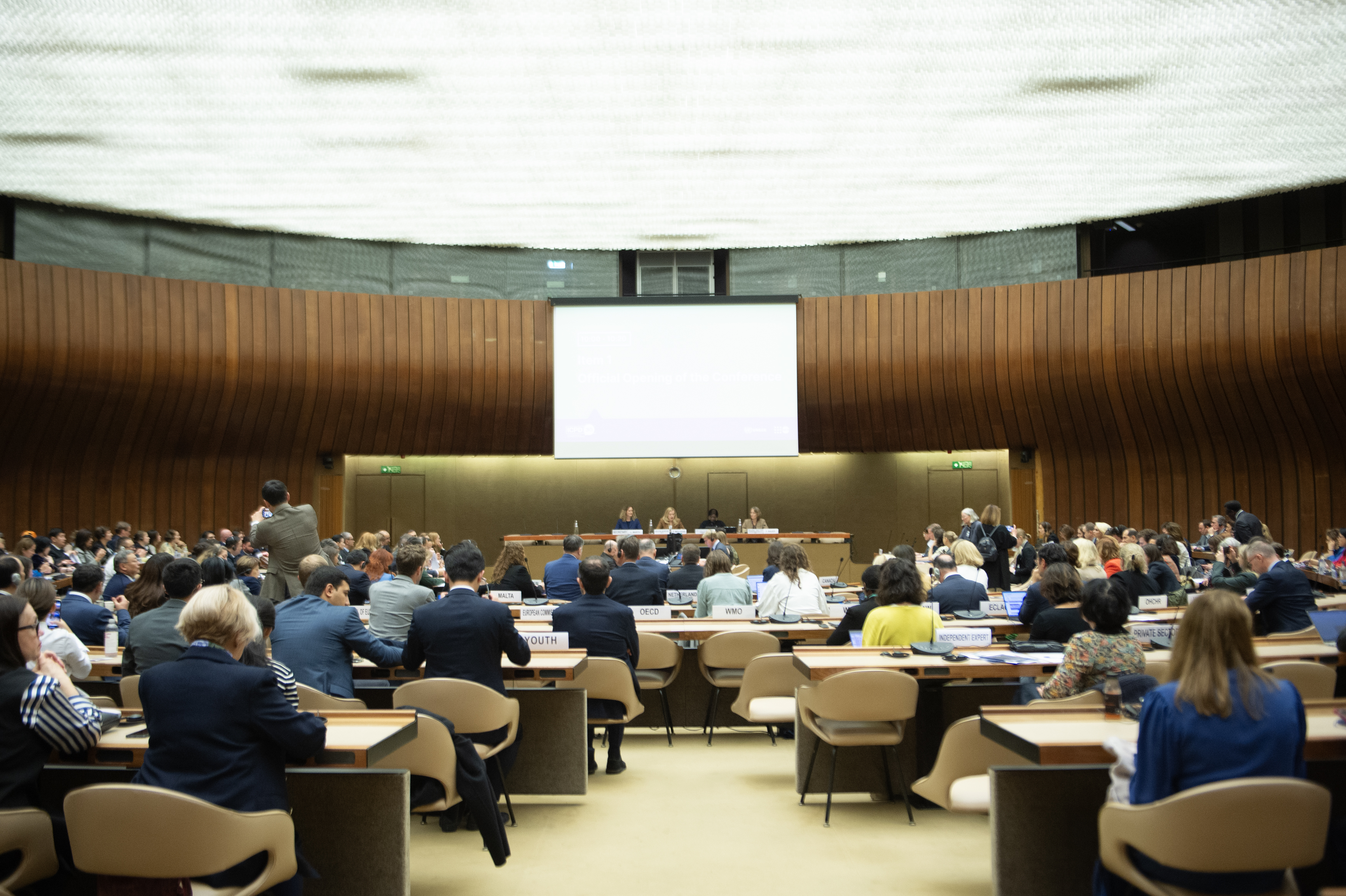
The conference brings together over 300 representatives of governments, including ministers and other high-level officials, civil society and academia, as well as parliamentarians and young people. The Conference will set priorities for sustaining progress and addressing setbacks across three main themes: (1) population dynamics and sustainable development; (2) families and reproductive health over the life course; and (3) inequalities, social inclusion and rights. Speakers of this high-level regional population conference stressed that investing in the well-being and choices of people must remain a key priority for enabling countries to address current socio-economic and demographic challenges and make the most of the opportunities that also present themselves. Turkmenistan was also represented by the high-level delegation comprising of Head of Delegation Mr. Atageldy Germanov, Minister of Health and Medical Industry of Turkmenistan, Ms. Guljemile Annaniyazova, Deputy Chair of State Statistics Committee of Turkmenistan, Ms. Shemshat Atajanova, Head of the Department of the Institute of State, law and Democracy. Head of Delegation from Turkmenistan made a statement during the Panel “Family, Sexual Reproductive Health over life course”.
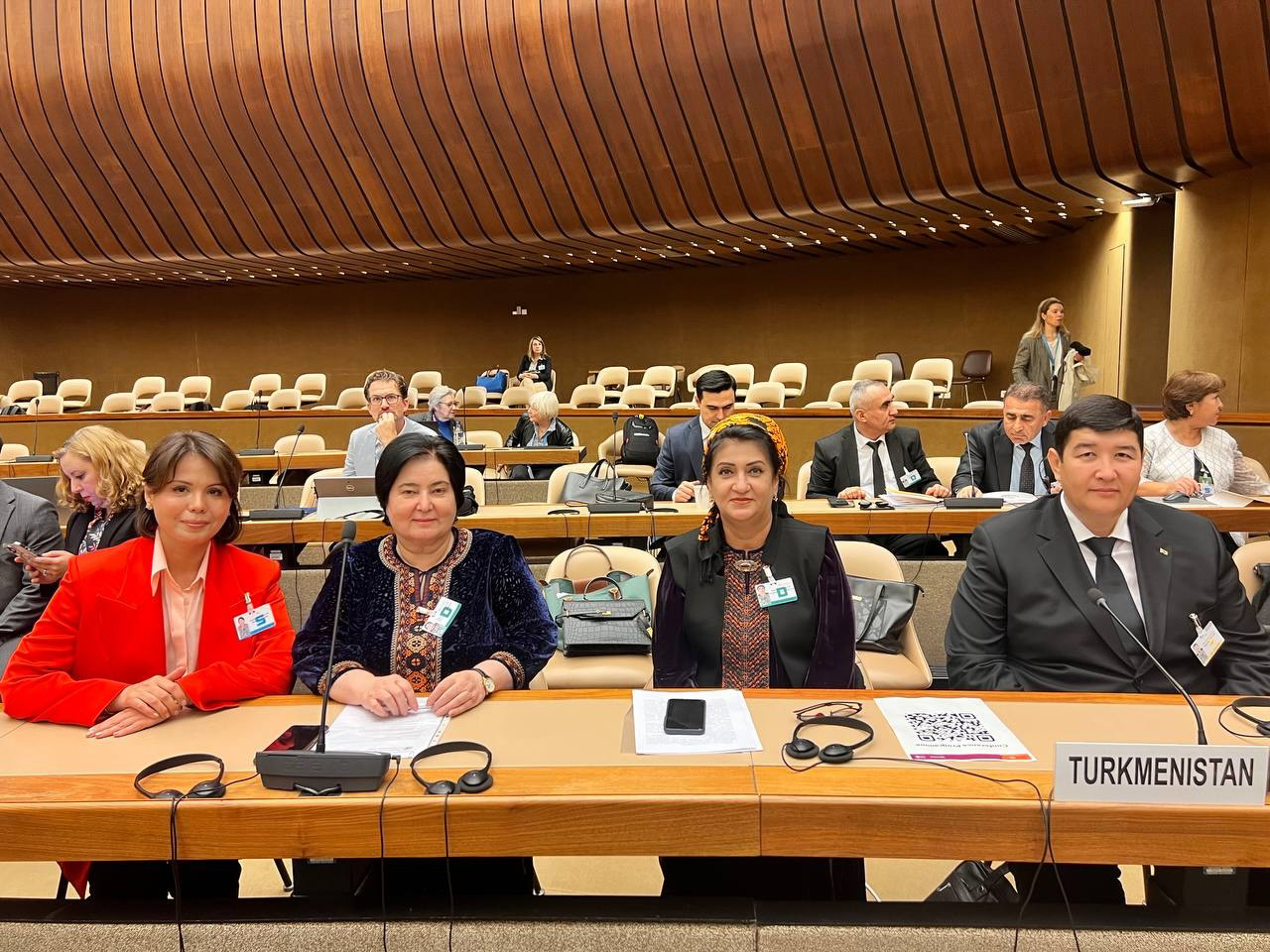
“The UNECE region remains at the forefront of global demographic transformation. Most countries are facing, or will soon face, declining fertility, ageing populations and projected population decline. These changes present challenges, but they also present opportunities. The ICPD Programme of Action provides an essential roadmap for policy approaches that capitalize on the potential of individuals, and strengthen societies amid new demographic realities”, said Tatiana Molcean, UNECE Executive Secretary.
“As concerns are on the rise on the effects of demographic change, the principles agreed at the ICPD, and later reflected in the SDGs, serve as a framework for finding constructive, forward-looking and long-term solutions that benefit individuals and societies as a whole,” said Diene Keita, UN Assistant Secretary-General and UNFPA Deputy Executive Director. “Despite increasing polarization, there is more that unites us than sets us apart. It is in the interest of every nation to pursue people-centered development because it creates the conditions for healthy, empowered individuals and vibrant, thriving societies.”
The Turkmenistan delegation, led by His Excellency Mr. Atageldy Germanov, Minister of Health and Medical Industry of Turkmenistan reiterated the country commitments to ICPD PA and highlighted the progress that Turkmenistan has achieved during the last decade towards it, including the reduction of maternal mortality from preventable causes, which is currently one of the lowest in the Eastern Europe and Central Asia region. He also mentioned that the country has the ambition to bring the unmet need for family planning to 3.5 by 2030 through the coverage of services in 96 reproductive health offices, primarily to those who need them the most. The data from the recent population census was highlighted as one of the substantial means that will enable the country to track the progress towards the Sustainable Development Goals”.
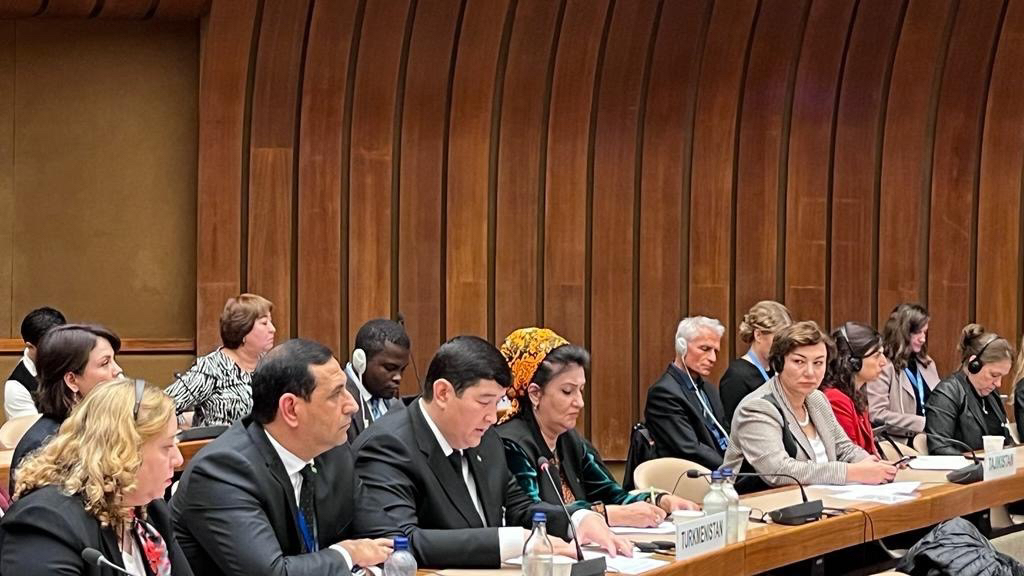
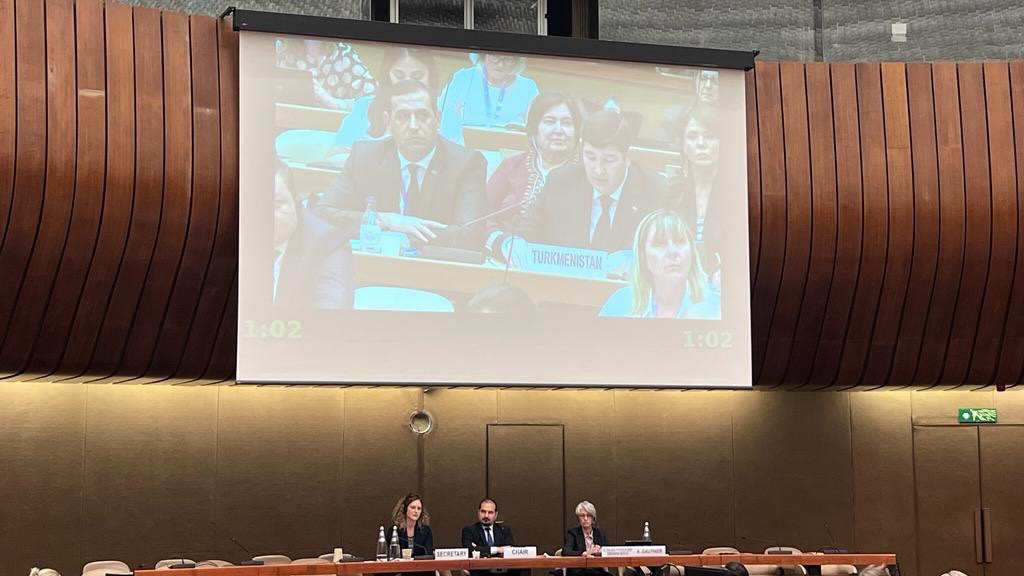
A 210-page report presented to the conference, which takes place ahead of the 30th anniversary of the ICPD in 2024, found that progress has been made overall on achieving many of the ICPD goals, but also raises alarm that in a number of areas progress has slowed or even reversed recently under the impression of various crises and a growing pushback on gender equality and reproductive rights.
The UNECE region’s population is growing and is expected to continue its increase for the next decades, mostly due to immigration, as fertility rates are on the decline and a growing number of countries are seeing their populations get smaller and older, according to the report. Working-age populations have continued to shrink across the region except in Central Asia, where fertility rates remain high.
Net migration into the region has dropped to its lowest level since 1994, though the report notes significant regional diversity. The report notes that receiving countries must continue to facilitate the integration of migrants into labour markets and society, ensuring access to decent work, education, and healthcare. It further highlights that as the intensity and complexity of international migration deepens, all member States can further protect the rights of migrants and facilitate safe, orderly and regular migration.
People live longer and healthier lives, the report found. Fewer women die giving birth today compared to twenty years ago, and fewer teenagers give birth after getting pregnant unintentionally. Programmes supporting men and women with reconciling work and family responsibilities are more widely available. At the same time, progress on reducing maternal mortality has slowed recently and mortality rates have even been on the rise in about a third of all countries in the region. Gender-based violence remains rampant across the region, and surveys even indicate a worrying increase in the social acceptability of violence against women in several countries.
Background:
In 1994, at the International Conference on Population and Development (ICPD), 179 countries came together and adopted a Programme of Action, in which they agreed that population policies must be aimed at empowering couples and individuals— especially women—to make decisions about the size of their families, providing them with the information and resources to make such decisions, and enabling them to exercise their reproductive rights. For the first time in an international consensus document, states agreed that reproductive rights are human rights that are already recognized in domestic and international law.
The ICPD Programme of Action recognizes that realizing the right to reproductive health is a critical element of guaranteeing reproductive rights. The ICPD Programme of Action broadly defines reproductive health as “a state of complete physical, mental and social well-being and not merely the absence of disease or infirmity, in all matters relating to the reproductive system and to its functions and processes.” In adopting the ICPD Programme of Action, states committed to take legal, policy, budgetary, and other measures to effectuate the principles and rights enshrined in the document.
Every five years since ICPD, states have come together to reaffirm this commitment, analyze the progress that has been made towards realizing sexual and reproductive health and reproductive rights, and decide upon further actions that should be taken.
For more information, please contact:
Ogulgerek Annayeva
Communications Analyst
About UNFPA:
UNFPA's mission is to deliver a world where every pregnancy is wanted, every childbirth is safe and every young person's potential is fulfilled.
